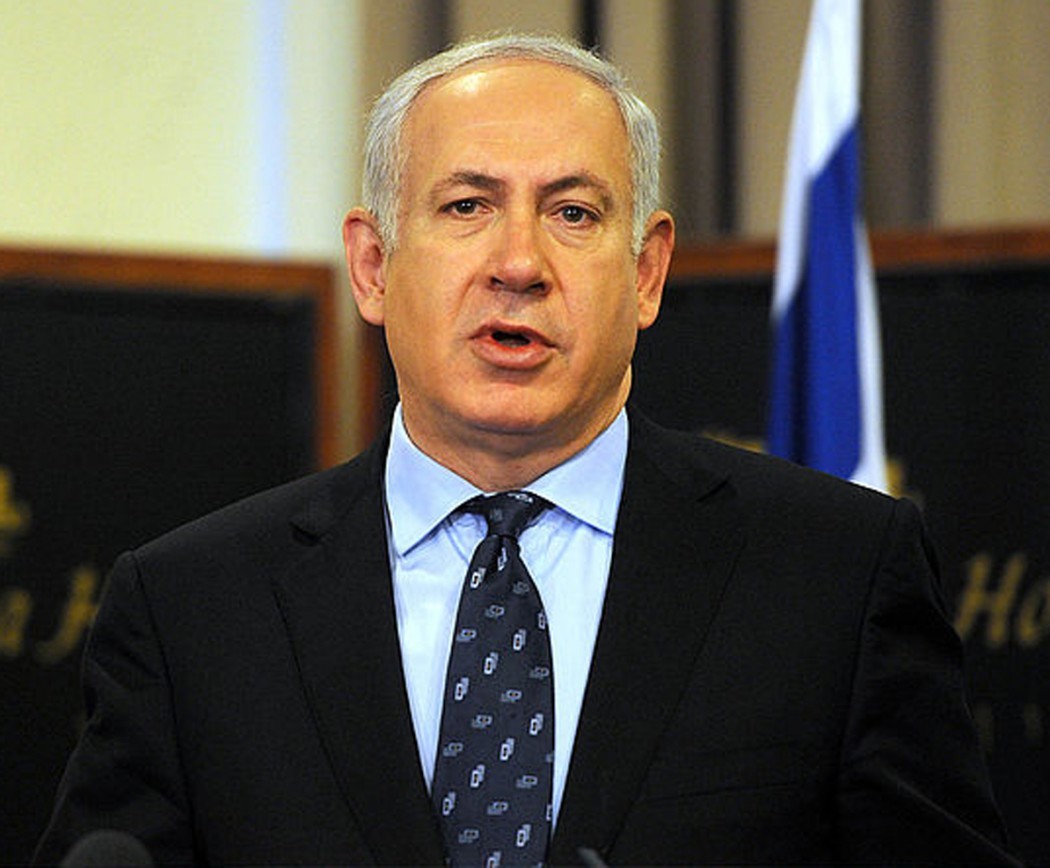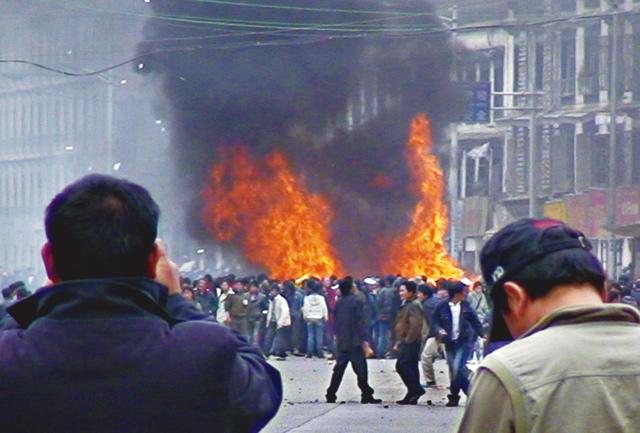After months of dilly-dallying and last-minute back room negotiations the European Union declared that products from the Israeli settlements on the West bank need to be labeled as such the European Union. Products from the Israeli settlements should either read ‘made in Palestine (Israeli settlement)’ or ‘made in an Israeli settlement on the West bank’. Israel is understandably upset about the regulation and the bellicose Prime Minister, Benjamin Netanyahu, calls it ‘reminiscent of Europe’s shameful history’.
There are so many territorial disputes in the world, his reasoning goes, that singling out Israel smacks of anti-Semitism. The EU says it is not political, but that it enhances consumer choice. If this is the case, I ask, then why is there no European legislation pending to allow consumers to know whether or not products ‘made in China’ are actually made in Chinese-administered Tibet? Or in Xinjiang/East-Turkestan? Or using prison slave labor? If Israel is not being singled out, he says, it is high time that the EU starts labeling products from China more accurately.
I think the whole labeling issue is a ridiculous waste of time while Europe is burning, but now that it is on the books, the question should be asked ‘why Israel?’ Or more accurately, ‘why only the territorial dispute that Israel has with the Palestinians?’ As a consumer, I probably would not buy olive oil from the West bank if I knew it came from there and not from the state of Israel within its 1967 borders. I am the kind of consumer the EU has in mind with this labeling law. However, I also want to know if my products ‘made in China’ are not made using slave labor from Socialist prison camps. If my fruit will now be labeled ‘made in an Israeli settlement of the West bank’, why can I not find ‘made in Xinjiang, also known as East Turkestan’ or ‘made in (China-administered) Tibet’?

Slave labor
When Chun Aiwen walked through an Aldi store in Alkmaar, Holland, he suddenly saw a clock that was exactly the kind of cheap wall clock he had assembled in a Chinese prison camp. The label said ‘made in China’, and he agreed that this is technically correct. ‘But I think consumers would certainly benefit from the knowledge that this was made using slave labor,’ Aiwen says. In 2004 he was released from a prison camp in Heilongjiang Province, in northeastern China.
After having been denied a visum several times, he finally left China in 2012, by walking the treacherous mountain paths across the Tibetan plateau, eventually reaching India, where he contacted a friend who helped him fly to Holland. He was granted asylum there. Chun had been a paralegal for a law firm in Hebei province which took several human rights cases. He was arrested for ‘illegally gathering information’ for one of those cases and sent to his Heilongjiang prison.

Chun worked under the laojiao system of ‘re-education through labor’, which meant he had to work 15 hours a day and then listen to endless indoctrination before enjoying a vegetable soup and, if he was lucky, some gruel. Although less well-known than the Soviet gulag, the laojiao system is brutal. It has been officially abolished, but both Amnesty International and the EU institute of labor relations agree that in practice slave labor in Chinese prisons is widespread.
The workers are common criminals, but also thought criminals of the Orwellian kind: fighters for freedom, human rights or religious freedom. Scattered throughout many prisons in China are still the practitioners of the long-outlawed Falun Gong religious movement. Unsurprisingly, numbers are hard to come by, but it is quite clear that China is still using widespread prison slave labor. Many of the workers have not even been convicted of any crime, since Chinese law allows for a person to be ‘detained’ for up to four years on charges. By forcing China to label products bound for the EU market as such the EU could help shine some much needed light on the situation and if China is unwilling to comply, this is all the more reason to shame the country for its many ‘palestines’.
Tibet and Xinjiang
When I hear Palestinians speak of their Nakba or national disaster, the 1948 partition of the British mandate of Palestine and the brutal war that followed, I admit to being moved. I will not go into a discussion of Israeli and Arab atrocities against the Palestinians, but let us say that, whoever inflicted the pain, the Palestinian people is a long-suffering one.
Yet, the mountainous region of greater Tibet, which includes the Tibet autonomous region and sizable portions of some surrounding Chinese provinces, has been a de facto occupied territory longer than the west bank of the River Jordan. Where the Israeli government has tried to create facts on the ground with their settlements, the Chinese government has done the same with massive Han migration to Tibet. Tibetans have a history at least as long as that of the Palestinians and their repression is at least as brutal. I am hard-pressed to find differences on the ground, except that, in legal terms, the Chinese government has been more successful than that of Israel to have the international community accept the status quo.

Xinjiang has been part of China off and on for centuries, but it is clear that the Uyghurs in the autonomous region, like their co-religionists in Palestine, are faced with widespread repression and religious discrimination. The Uyghurs are the only population of the whole People’s Republic for whom the share of income out of agriculture actually grew during the decades-long economic boom. This is not because they are such great farmers, but because they are increasingly forced out of other occupations and exiled to the countryside. Here, too, mass migration of Han Chinese has been promoted by the CCP to dilute the ethnic uniqueness of the region.
The architecture of Han-dominated cities in Xinjiang is eerily similar to that of the Jewish settlements in Palestinian territories. Like some Palestinians, a minority of Uyghurs have turned to Islamic extremism in their frustration with being discriminated and disenfranchised. However, in Xinjiang, as in Tibet, the Chinese government has shown to be much more ruthless than that of Israel. China, without any of the restrictions that Israel has because of democratic values and the rule of law, has successfully marginalized Tibetans and Uyghurs.
Different labels and double standards
It could be argued that consumers do not really care where their products come from or under which conditions they are made. We have seen tragic disasters in clothing sweatshops and people still buy stuff at H&M. Information and choice are overrated. A few consumers will stop buying a few products, but the oppression will not stop. I have been planting trees to offset my carbon footprint, but I have not stopped flying.
This is a viable argument against labeling, but now that products from Israeli settlements need to be labeled as such, the European Union should be honest and start labeling more products from regions where human rights conditions are even more grievous, such as China. Yes, there are differences, and I do not wish to belittle them, but if the European Union does not label products from other territorial hotspots as such, it should seriously consider that the Israeli government has a good point about this singling out being thinly disguised anti-Semitism.
